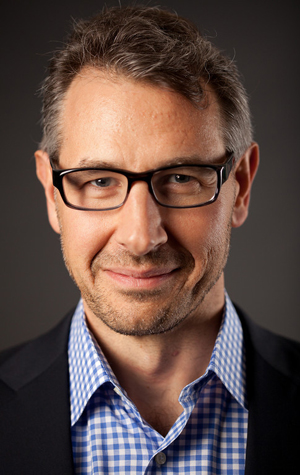Wanted: Faculty to Develop MOOCs and Help Design BU’s Digital Future
Sessions next week kick off brainstorming, awarding of grants

Help Wanted: Seeking faculty to develop MOOCs and propose ideas that will enhance BU’s value and standing in the coming era of digital learning. Grants available from BU’s Digital Learning Initiative (DLI). Meetings to brainstorm and answer questions start next Monday, December 2. Deadline for proposals is January 31, 2014.
The brainstorming sessions launch three months of meetings and presentations by the DLI, the faculty-led group spearheading BU’s digital learning innovation efforts, to chart the University’s digital future. There are two meetings on December 2. The first, on MOOCs (massive open online courses), runs from noon to 1 p.m. in the Provost Conference Room on the eighth floor of One Silber Way. The second, on ideas for using technology to improve BU’s residential experience, is from 5 to 6 p.m. in the same room.
DLI director Chris Dellarocas, a School of Management professor of information systems, urges his colleagues to participate in the process, as the next few years should bring “more changes in higher education than we’ve seen in decades, even centuries.” He says the grants “will support the best ideas of our faculty in the creative use of digital technologies to support residential and distance education. We strongly believe that Boston University has the potential to harness the use of technology to become an even stronger institution.”
MOOCs, available to students globally whether they attend BU or not, is one of three areas the DLI is covering in these meetings. The others are the aforementioned residential experience projects, and projects that create new revenue or reduce the costs of providing an education.
The DLI’s document requesting faculty proposals says examples of technology improving residential life might include using MOOCs in residential settings; blended courses (for-credit classes combining online work and traditional, in-person instruction); courses or programs that use “Boston as a classroom”; and online courses or activities linking students to employers. Other ideas are, of course, very welcome.
As for revenue-generating and cost-cutting applications, “Even though tuition is at an all-time high, it is not sufficient to cover the full costs of educating our residential students,” the DLI says. Examples of relevant technological innovations might include courses or programs “that extend BU’s reach” to nonresidential students like alumni and professionals; online courses that allow students to earn their degree in less time, thereby cutting costs and student debt; digital textbooks and similar technological innovations that might earn money for BU; and BU’s creating educational materials platforms, either alone or with other partners.
Other brainstorming/question sessions are scheduled for December 3 and 4. Following the January 31 deadline for faculty to submit one-to-two-page proposals, those applicants will give short presentations of their proposals at an EdTech Idea Fest on February 25, which will run from 4:30 to 6 p.m. at the Rafik B. Hariri Institute for Computing and Computational Science & Engineering Seminar Room (MCS-180) at 111 Cummington Mall. Find more details on all these events and scheduled January sit-downs to discuss proposals with DLI leaders here. If you plan to attend any of these events, the DLI requests an RSVP to budli@bu.edu.
The creation of the DLI was recommended by a Council on Educational Technology & Learning Innovation report commissioned by President Robert A. Brown.
Comments & Discussion
Boston University moderates comments to facilitate an informed, substantive, civil conversation. Abusive, profane, self-promotional, misleading, incoherent or off-topic comments will be rejected. Moderators are staffed during regular business hours (EST) and can only accept comments written in English. Statistics or facts must include a citation or a link to the citation.